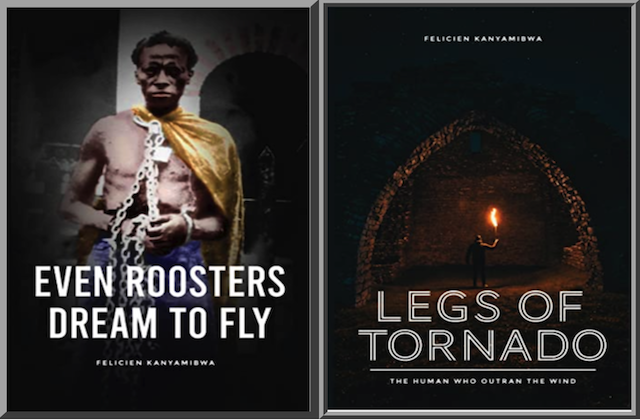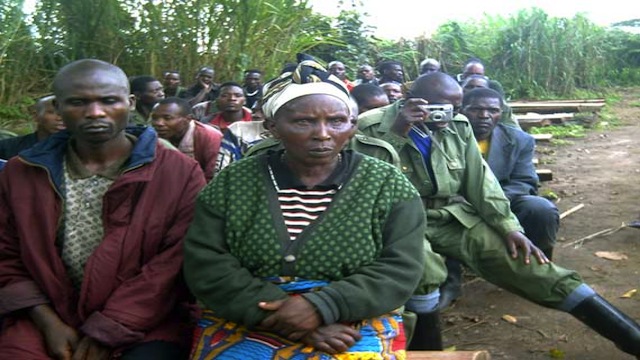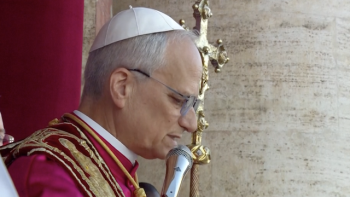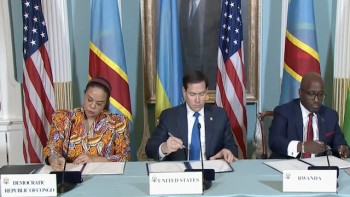On March 3, 2024, the Eglise du Christ au Congo (ECC) issued a statement to the Government of the DR Congo, recommending to organize a national dialogue aimed at addressing and resolving issues of peace, security and state governance. Meanwhile, AfroAmerica Network has learned that the DR Government, in accord with the calls from the Eglise du Christ au Congo (ECC) and after constructive discussions with world powers and governments, including the United States of America (USA), The European Union (EU), Southern African Development Community (SADC), and the United Nations (UN), has decided to reengage in a process to repatriate or resettle the Rwandan refugees who have been in the DR Congo for 30 years and their descendants.
The statement by the Eglise du Christ au Congo (ECC) focused on the violence in the provinces of Eastern DR Congo, due to the invasion of the Rwandan troops under the cover of M23 rebels and the rise of intra-community tensions in the provinces of Kwango, Mai-Ndombe, Grand-Katanga, and Grand Kasaï.
The calls to the DR Congo government were included in the report of the work of the 62nd ordinary session of the National Executive Committee of the Church of Christ in Congo made public during a church service at the Centenary Cathedral in Kinshasa.
“Concerned by the resurgence of cycles of violence in the provinces of Eastern DR Congo, and provinces of Kwango and Mai-Ndombe, challenged by the rise in intra-community tensions in the areas of Grand-Katanga and Grand Kasaï, our Church calls on the Head of the State to stick to the commitment not to return to the errors of the past, and urges him to open a national dialogue between the sons and the daughters of the country, with a vision and golas to rebuilding a national cohesion, around the common objectives of peace, security and governance of our country,” said Pastor Dominique Mukanya, spokesperson of the ECC National Synod.
On-Going Discussions Between DR Congo Government and World Powers and Institutions on Peace in Eastern DRC.
AfroAmerica Network has learned that the DR Government has been holding discussions with world powers and governments, including United States of America (USA), The European Union (EU), Southern African Development Community (SADC), The United Nations (UN), with the main topic regarding the pretexts advanced by the Rwandan regime of supporting M23 rebels to fight against the FDLR, protect Congolese from the ethnic Tutsi group and stop the anti-Tutsi hate speech. According to sources, the DR Congo leaders and representatives of these countries have agreed that these excuses regarding Tutsi ethnic group and hatred speech used by Rwandan government and military leaders are clearly false, especially that most of Congolese from the Tutsi ethnic group have also disassociated themselves from the rhetoric used by the Rwandan government.
However, at the same time, the DR Congo and these countries appear to have reached the conclusion that an action has to be taken to put and end these false excuses used by the current Rwandan regime, to invade DR Congo with the goal to loot the minerals and other natural resources.
According to AfroAmerica Network sources, based on those on-going discussions, the DR Government has been looking into several options of potential processes to bring lasting peace into Eastern DR Congo. One of the most preferred options under consideration is to relaunch what is known as the Rome-Kisangani-Kasiki process.
What is Rome-Kisangani-Kasiki Process ?
The Rome-Kisangani-Kasiki was between the DR Congo government and the Rwandan opposition group known as National Democratic Congress (NDC) or Congrès National Pour la Démocratie (CND). National Democratic Congress (NDC) is a coalition between Rally for Unity and Democracy (RUD-Urunana), mostly composed of Rwandan ethnic Hutus and Rally of the Rwandan People (RPR - Inkeragutabara) mostly composed of Rwandan ethnic Tutsis who were members of the Rwandan regime, the Rwandan Patriotic Front (RPF), before being forced into exile when they criticized the RPF government and military leaders for supporting on-going massacres in Rwanda, assassinations of opposition leaders, and invasions of neighboring countries, especially DR Congo (see here: National Democratic Congress - Congrès National Pour la Démocratie).
The peace negotiations were known as “the Kisangani Peace Process". The Kisangani Peace Process was initiated in Rome and Kisangani with the facilitation of Sant’ Egidio Community and the support from members of the International Community, including the European Union, United Nations, South Africa, World Bank, SADC, UNHCR, United States of America, Norwegian Government, SIK-Norway, OCHA, Eglise du Christ of Congo (ECC), and several Non-Governmental organizations.
The facilitator was the current Bologna Archbishop Cardinal Matteo Zuppi, then, as a co-founder Sant'Egidio Community, in Santa Maria del Trastevere district, was serving as its chaplain and mediating several political negotiations in Africa (see Bologna Archbishop Matteo Zuppi, Moral Witness of Peace Processes, Created Cardinal ). The Eglise du Christ of Congo (ECC) was represented by the late Msgr Kuye Ndondo.
Advertisement
Get the following books on Amazon:

Legs of Tornado: The Human Who Outran the Wind, an African tale about a human from a humble upbringing who outran the wind, defeated evil spirits, overcame his fate, became a respected clan chief, and triumphed ever after.
Click Here to Get the books: Even Roosters Dream to Fly and Legs of Tornado
Even Roosters Dream to Fly along with Legs of Tornado are also available on Amazon worldwide and soon on several other platforms:
For more on the book, the author, the inspiration of the stories, Visit the author website here
Check the Book Video trailer of Even Roosters Dream to Fly, here
What Happened to Rome-Kisangani-Kasiki Process and Where is It Now?
- Following the initial negotiations in Rome, under the facilitation of Bishop Matteo Zuppi, the peace process evolved as follows:
In January 2008, the National Democratic Congress or in French, Congres National pour le Democratie (NDC-CND), the coalition of the Rally for Unity and Democracy (RUD - Urunana) and the Rally for the Rwandan People (RPR - Inkeragutabara) voluntarily and resolutely engaged in a peace process with the Government of the Democratic Republic of the Congo (DRC), under the facilitation of Sant’ Egidio Community and the support of members of the International Community. The Roadmap for this Peace Process was published in Kisangani on May 26, 2008. - On July 31, 2008, within the framework of the Kisangani Peace Process, the NDC-CND conducted, in the front of members of the International Community, including Rwandan government representatives, the disarmament process in Kasiki, Lubero, in North-Kivu Province of DRC.
Within the same framework, from January 23-28, 2009, a delegation of the RUD/RPR combatants and their dependents visited Rwanda, upon the invitation of the Rwandan Government and with the facilitation of the International Community. The goal of the exploratory visit was to inquire about the security conditions and the political, social, and economical participation of citizens inside Rwanda. - The Roadmap publication, followed by the disarmament of the first group of combatants, the regroupment of disarmed combatants and refugees in Kasiki, and the exploratory visit constituted strong and positive signals of the commitment to solutions for durable peace in the region that the NDC-CND sent to the DRC, Rwandan Governments, the United Nations, the European Union, the African Union, and other institutions and individuals interested in peace in the Region.
- However, the Rwandan government, mostly interested in looting the minerals and natural resources of the DRC and using the pretext of Rwandan refugees, saw the peace process as a threat to the looting. Many top FARDC commanders, who collaborated with the Rwandan Military leaders in the looting were also not happy.
Consequently, in January 2009, Rwandan Defense Forces (RDF) in collaboration with FARDC troops involved in the looting with Rwandan military leaders attacked the camps of disarmed Rwandan refugees, that also housed women, children and elderly.
The purpose of the attack was to ensure that wars be given precedence over peace, especially that the Kisangani Peace Process was bearing fruits and opening new prospects for durable peace, which at the end would have removed the pretexts used to date by the current Rwandan leaders to loot the Democratic Republic of the Congo.
Now, fourteen years later, the looting of minerals and natural resources using the fake wars to hunt down and massacre Rwandan refugees in the Democratic Republic of the Congo, did not bring peace in the region and, instead, has aggravated the plight of the Congolese people. In fact, the latest invasions of the DRC by Rwandan troops, under the cover of M23 rebels, has worsened the situation.
Hence, according to the AfroAmerica Network sources, there are high possibilities for the DR Congo government to renew the commitment to the Rome-Kisangani-Kasiki process and move forward with a more creative approach to avoid similar failures and not fall in the trap the Rwandan government of 1994 fell into (see here: DR Congo: Potential Luanda Accord and Consequences Slowly Mirroring 1994 Rwandan Arusha Accords on Rwanda).
.
AfroAmerica Network is still following the dynamics.
©2024 AfroAmerica Network

















